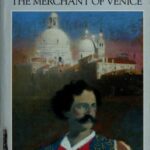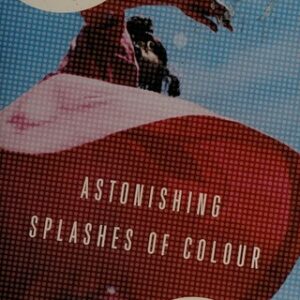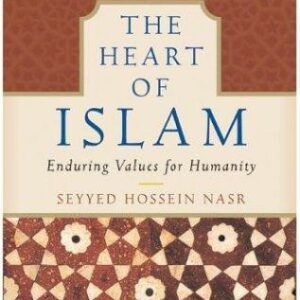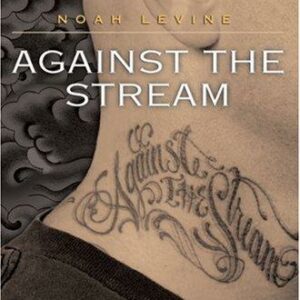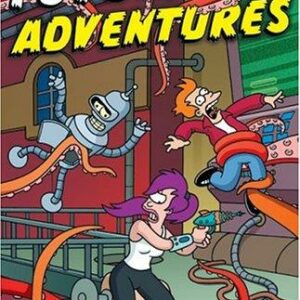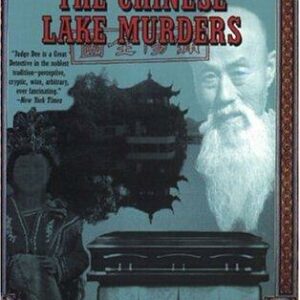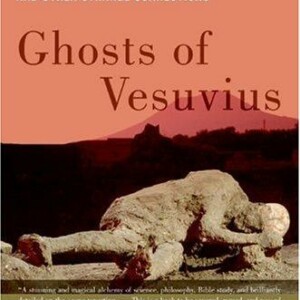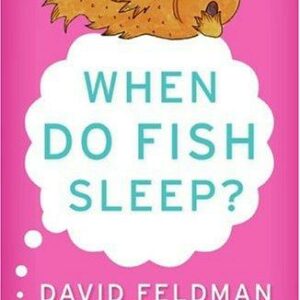The Merchant of Venice
$6.95
| Title | Range | Discount |
|---|---|---|
| Trade Discount | 5 + | 25% |
- Description
- Additional information
Description
This is one of Shakespeare’s darkest comedies, for the romantic story of a young man, Bassanio, who has squandered his fortune and must borrow money to woo the wealthy lady he loves is set against the more disturbing story of the Jewish moneylender Shylock and his demand for the “pound of flesh” owed him by the Venetian merchant, Antonio. Here pathos and farce combine with moral complexity and romantic entanglement to display the extraordinary power and range of Shakespeare at his best.
Each Edition Includes:
• Comprehensive explanatory notes
• Vivid introductions and the most up-to-date scholarship
• Clear, modernized spelling and punctuation, enabling contemporary readers to understand the Elizabethan English
• Completely updated, detailed bibliographies and performance histories
• An interpretive essay on film adaptations of the play, along with an extensive filmography William Shakespeare was born in Stratford-upon-Avon in April 1564, and his birth is traditionally celebrated on April 23. The facts of his life, known from surviving documents, are sparse. He was one of eight children born to John Shakespeare, a merchant of some standing in his community. William probably went to the King’s New School in Stratford, but he had no university education. In November 1582, at the age of eighteen, he married Anne Hathaway, eight years his senior, who was pregnant with their first child, Susanna. She was born on May 26, 1583. Twins, a boy, Hamnet ( who would die at age eleven), and a girl, Judith, were born in 1585. By 1592 Shakespeare had gone to London working as an actor and already known as a playwright. A rival dramatist, Robert Greene, referred to him as “an upstart crow, beautified with our feathers.” Shakespeare became a principal shareholder and playwright of the successful acting troupe, the Lord Chamberlain’s Men (later under James I, called the King’ s Men). In 1599 the Lord Chamberlain’s Men built and occupied the Globe Theater in Southwark near the Thames River. Here many of Shakespeare’s plays were performed by the most famous actors of his time, including Richard Burbage, Will Kempe, and Robert Armin. In addition to his 37 plays, Shakespeare had a hand in others, including Sir Thomas More and The Two Noble Kinsmen, and he wrote poems, including Venus and Adonis and The Rape of Lucrece. His 154 sonnets were published, probably without his authorization, in 1609. In 1611 or 1612 he gave up his lodgings in London and devoted more and more time to retirement in Stratford, though he continued writing such plays as The Tempest and Henry VII until about 1613. He died on April 23 1616, and was buried in Holy Trinity Church, Stratford. No collected edition of his plays was published during his life-time, but in 1623 two members of his acting company, John Heminges and Henry Condell, put together the great collection now called the First Folio.
[Dramatis Personae
THE DUKE OF VENICE
ANTONIO, a merchant of Venice
BASSANIO, his friend, suitor to Portia
GRATIANO, a follower of Bassanio, in love with Nerissa
SOLANIO, friends to Antonio
SALERIO, and Bassanio
LORENZO, in love with Jessica
LEONARDO, servant to Bassanio
PORTIA, a rich heiress of Belmont
NERISSA, her waiting-gentlewoman
BALTHASAR, servant to Portia
STEPHANO, servant to Portia
THE PRINCE OF MOROCCO, suitor to Portia
THE PRINCE OF ARAGON, suitor to Portia
A MESSENGER to Portia
SHYLOCK, a rich Jew
JESSICA, his daughter
TUBAL, a Jew, Shylock’s friend
LANCELOT GOBBO, a clown, servant to Shylock and then to Bassanio
OLD GOBBO, Lancelot’s father
Magnificoes of Venice, Officers of the Court of Justice, Jailor, Servants to Portia, and other Attendants
Scene: Partly at Venice and partly at Belmont,
the seat of Portia]
1.1. Location: A street in Venice.
1In sooth Truly. sad morose, dismal-looking.
5am to learn have yet to learn
6such . . . of me such sadness makes me so distracted, lacking in good sense
9argosies large merchant ships. (So named from Ragusa, the modern city of Dubrovnik.) portly majestic
10signors gentlemen. flood sea
11pageants mobile stages used in plays or processions
12overpeer look down upon
13curtsy i.e., bob up and down, or lower topsails in token of respect (reverence)
14woven wings canvas sails.
15venture forth investment at risk
17still continually
19roads anchorages, open harbors
23blow . . . ague i.e., start me shivering
26flats shoals
[1.1] A Enter Antonio, Salerio, and Solanio.
ANTONIO
In sooth, I know not why I am so sad.1
It wearies me, you say it wearies you;
But how I caught it, found it, or came by it,
What stuff ’tis made of, whereof it is born,
I am to learn;5
And such a want-wit sadness makes of me6
That I have much ado to know myself.
SALERIO
Your mind is tossing on the ocean,
There where your argosies with portly sail,9
Like signors and rich burghers on the flood,10
Or as it were the pageants of the sea,11
Do overpeer the petty traffickers12
That curtsy to them, do them reverence,13
As they fly by them with their woven wings.14
SOLANIO
Believe me, sir, had I such venture forth,15
The better part of my affections would
Be with my hopes abroad. I should be still17
Plucking the grass to know where sits the wind,
Peering in maps for ports and piers and roads;19
And every object that might make me fear
Misfortune to my ventures, out of doubt
Would make me sad.
SALERIO My wind cooling my broth
Would blow me to an ague when I thought23
What harm a wind too great might do at sea.
I should not see the sandy hourglass run
But I should think of shallows and of flats,26
27Andrew name of a ship. (Perhaps after the St. Andrew, a Spanish galleon captured at Cadiz in 1596.)
28Vailing lowering. (Usually as a sign of submission.) high-top topmast
29burial burial place.
31bethink me straight be put in mind immediately
35even now a short while ago. this i.e., the cargo of spices and silks
38bechanced having happened
42bottom ship’s hold
44Upon . . . year i.e., risked upon the chance of the present year.
50two-headed Janus a Roman god of all beginnings, represented by a figure with two faces
51framed fashioned
52peep . . . eyes i.e., look with eyes narrowed by laughter
53at a bagpiper i.e., even at a bagpiper, whose music was regarded as melancholic
54other others. vinegar aspect sour, sullen looks
56Nestor venerable senior officer in the Iliad, noted for gravity
And see my wealthy Andrew docked in sand,27
Vailing her high-top lower than her ribs28
To kiss her burial. Should I go to church29
And see the holy edifice of stone
And not bethink me straight of dangerous rocks31
Which, touching but my gentle vessel’s side,
Would scatter all her spices on the stream,
Enrobe the roaring waters with my silks,
And, in a word, but even now worth this,35
And now worth nothing? Shall I have the thought
To think on this, and shall I lack the thought
That such a thing bechanced would make me sad?38
But tell not me. I know Antonio
Is sad to think upon his merchandise.
ANTONIO
Believe me, no. I thank my fortune for it,
My ventures are not in one bottom trusted,42
Nor to one place; nor is my whole estate
Upon the fortune of this present year.44
Therefore my merchandise makes me not sad.
SOLANIO
Why then, you are in love.
ANTONIO Fie, fie!
SOLANIO
Not in love neither? Then let us say you are sad
Because you are not merry; and ’twere as easy
For you to laugh and leap, and say you are merry
Because you are not sad. Now, by two-headed
Janus,50
Nature hath framed strange fellows in her time:51
Some that will evermore peep through their eyes52
And laugh like parrots at a bagpiper,53
And other of such vinegar aspect54
That they’ll not show their teeth in way of smile
Though Nestor swear the jest be laughable.56
61prevented forestalled
64th’occasion the opportunity
66laugh i.e., be merry together.
67strange distant. Must it be so? Must you go? or, Must you show reserve?
68We’ll . . . yours We’ll adjust our spare time to accommodate your schedule.
74respect . . . world concern for worldly affairs of business.
Enter Bassanio, Lorenzo, and Gratiano.
Here comes Bassanio, your most noble kinsman,
Gratiano, and Lorenzo. Fare ye well.
We leave you now with better company.
SALERIO
I would have stayed till I had made you merry,
If worthier friends had not prevented me.61
ANTONIO
Your worth is very dear in my regard.
I take it your own business calls on you,
And you embrace th’occasion to depart.64
SALERIO Good morrow, my good lords.
BASSANIO
Good signors both, when shall we laugh? Say,
when?66
You grow exceeding strange. Must it be so?67
SALERIO
We’ll make our leisures to attend on yours.68
Exeunt Salerio and Solanio.
LORENZO
My lord Bassanio, since you have found Antonio,
We two will leave you, but at dinnertime,
I pray you, have in mind where we must meet.
BASSANIO I will not fail you.
GRATIANO
You look not well, Signor Antonio.
You have too much respect upon the world.74
They lose it that do buy it with much care.
Believe me, you are marvelously changed.
ANTONIO
I hold the world but as the world, Gratiano–
A stage where every man must play a part,
And mine a sad one.
gratianoLet me play the fool.
81heat with wine (The liver was regarded as the seat of the passions and wine as an agency for inflaming them.)
82mortifying penitential and deadly. (Sighs were thought to cost the heart a drop of blood.)
84in alabaster i.e., in a stone effigy upon a tomb.
85jaundice (Regarded as arising from the effects of too much choler or yellow bile, one of the four humors, in the blood.)
89cream and mantle become covered with scum, i.e., acquire a lifeless, stiff expression. standing stagnant
90-2 And . . . conceit and who maintain a willful silence in order to acquire a reputation for gravity and deep thought
93As . . . say as if to say
94let . . . bark i.e., let no creature dare to interrupt me.
98-9 would . . . fools i.e., would virtually condemn their hearers into calling them fools. (Compare Matthew 5:22, in which anyone calling another a fool is threatened with damnation.)
101-2 fish . . . opinion i.e., don’t go fishing for a reputation of being wise, using your melancholy silence as the bait to fool people. (Gudgeon, a small fish, was thought of as a type of gullibility.)
106dumb mute, speechless
108keep if you keep
110for this gear in view of what you say.
With mirth and laughter let old wrinkles come,
And let my liver rather heat with wine81
Than my heart cool with mortifying groans.82
Why should a man whose blood is warm within
Sit like his grandsire cut in alabaster?84
Sleep when he wakes, and creep into the jaundice85
By being peevish? I tell thee what, Antonio–
I love thee, and ’tis my love that speaks–
There are a sort of men whose visages
Do cream and mantle like a standing pond,89
And do a willful stillness entertain90
With purpose to be dressed in an opinion91
Of wisdom, gravity, profound conceit,92
As who should say, “I am Sir Oracle,93
And when I ope my lips let no dog bark!”94
Oh, my Antonio, I do know of these
That therefore only are reputed wise
For saying nothing, when, I am very sure,
If they should speak, would almost damn those ears98
Which, hearing them, would call their brothers
fools.99
I’ll tell thee more of this another time.
But fish not with this melancholy bait101
For this fool gudgeon, this opinion.–102
Come, good Lorenzo.–Fare ye well awhile.
I’ll end my exhortation after dinner.
LORENZO [to Antonio and Bassanio]
Well, we will leave you then till dinnertime.
I must be one of these same dumb wise men,106
For Gratiano never lets me speak.
GRATIANO
Well, keep me company but two years more,108
Thou shalt not know the sound of thine own
tongue.
ANTONIO
Fare you well. I’ll grow a talker for this gear.110
112neat’s ox’s. not vendible i.e., not yet salable in the marriage market.
113Is . . . now? i.e., Was all that talk about anything?
115reasons reasonable ideas
119the same i.e., the one
124By . . . port by showing a somewhat more lavish style of living
125grant continuance allow to continue.
126-7 make . . . rate complain at being cut back from such a high style of living
128to . . . off honorably to extricate myself
129time youthful lifetime
130gaged pledged, in pawn.
132warranty authorization
133unburden disclose
136-7 if . . . honor if it looks honorable, as your conduct has always done
GRATIANO
Thanks, i’faith, for silence is only commendable
In a neat’s tongue dried and a maid not vendible.112
Exeunt [Gratiano and Lorenzo].
ANTONIO Is that anything now?113
BASSANIO Gratiano speaks an infinite deal of nothing,
more than any man in all Venice. His reasons are as 115
two grains of wheat hid in two bushels of chaff; you
shall seek all day ere you find them, and when you
have them they are not worth the search.
ANTONIO
Well, tell me now what lady is the same119
To whom you swore a secret pilgrimage,
That you today promised to tell me of.
BASSANIO
‘Tis not unknown to you, Antonio,
How much I have disabled mine estate
By something showing a more swelling port124
Than my faint means would grant continuance.125
Nor do I now make moan to be abridged126
From such a noble rate; but my chief care127
Is to come fairly off from the great debts128
Wherein my time, something too prodigal,129
Hath left me gaged. To you, Antonio,130
I owe the most, in money and in love,
And from your love I have a warranty132
To unburden all my plots and purposes133
How to get clear of all the debts I owe.
ANTONIO
I pray you, good Bassanio, let me know it;
And if it stand, as you yourself still do,136
Within the eye of honor, be assured137
My purse, my person, my extremest means
Lie all unlocked to your occasions.
140shaft arrow
141his its. selfsame flight same kind and range
142advisd careful
143forth out. adventuring risking
145innocence ingenuousness, sincerity.
148self same
150or either
151hazard that which was risked
152rest remain
153spend but time only waste time
154To . . . circumstance i.e., in not asking plainly what you want. (Circumstance here means “circumlocution.”)
156In . . . uttermost in showing any doubt of my intention to do all I can
160prest ready
161richly left left a large fortune (by her father’s will)
163Sometimes Once
165-6 nothing undervalued To of no less worth than
166Portia (The same Portia as in Shakespeare’s Julius Caesar.)
171Colchis’ (Jason adventured for the golden fleece in the land of Colchis, on the Black Sea.) strand shore
BASSANIO
In my schooldays, when I had lost one shaft,140
I shot his fellow of the selfsame flight141
The selfsame way with more advised watch142
To find the other forth, and by adventuring both143
I oft found both. I urge this childhood proof
Because what follows is pure innocence.145
I owe you much, and, like a willful youth,
That which I owe is lost; but if you please
To shoot another arrow that self way148
Which you did shoot the first, I do not doubt,
As I will watch the aim, or to find both150
Or bring your latter hazard back again151
And thankfully rest debtor for the first.152
ANTONIO
You know me well, and herein spend but time153
To wind about my love with circumstance;154
And out of doubt you do me now more wrong
In making question of my uttermost156
Than if you had made waste of all I have.
Then do but say to me what I should do
That in your knowledge may by me be done,
And I am prest unto it. Therefore speak.160
BASSANIO
In Belmont is a lady richly left;161
And she is fair and, fairer than that word,
Of wondrous virtues. Sometimes from her eyes163
I did receive fair speechless messages.
Her name is Portia, nothing undervalued165
To Cato’s daughter, Brutus’ Portia.166
Nor is the wide world ignorant of her worth,
For the four winds blow in from every coast
Renowned suitors, and her sunny locks
Hang on her temples like a golden fleece,
Which makes her seat of Belmont Colchis’ strand,171
And many Jasons come in quest of her.
175presages i.e., that presages thrift profit and good fortune
178commodity merchandise
179a present sum ready money.
181racked stretched
183presently immediately
184no question make have no doubt
185of my trust on the basis of my credit as a merchant. sake i.e., personal sake.
1.2. Location: Belmont. Portia’s house.
1troth faith
3would be would have reason to be (weary)
5surfeit overindulge
7mean small. (With a pun; see next note.)
7-8 in the mean having neither too much nor too little.
8comes sooner by acquires sooner
9competency modest means
10sentences maxims. pronounced delivered.
14divine clergyman
18blood (Thought of as a chief agent of the passions, which in turn were regarded as the enemies of reason.)
Oh, my Antonio, had I but the means
To hold a rival place with one of them,
I have a mind presages me such thrift175
That I should questionless be fortunate.
ANTONIO
Thou know’st that all my fortunes are at sea;
Neither have I money nor commodity178
To raise a present sum. Therefore go forth.179
Try what my credit can in Venice do;
That shall be racked even to the uttermost181
To furnish thee to Belmont, to fair Portia.
Go presently inquire, and so will I,183
Where money is, and I no question make184
To have it of my trust or for my sake.Exeunt. 185
[1.2] A Enter Portia with her waiting woman, Nerissa.
PORTIA By my troth, Nerissa, my little body is aweary 1
US
Additional information
| Weight | 5.4 oz |
|---|---|
| Dimensions | 0.6900 × 4.1600 × 6.7500 in |
| ISBN-13 | |
| Imprint | |
| Format | |
| Author | |
| Audience | |
| BISAC | |
| Subjects | British literature, Literature, antique, money, musical, Judaism, theatre, musicals, adaptation, english literature, plays, antisemitism, broadway, UK, classic literature, PER011000, classic books, jew, comedies, accelerated reader, antonio, arden, early modern, shylock, portia, elizabethan drama, love, history, DRA010000, england, british, high school, family, Europe, Elizabethan, Italy, english, discrimination, classic, comedy, Greed, drama, law, classics, jews, humor, theater, justice, graphic novel, play, adult, Shakespeare, 16th century, 17th century |


